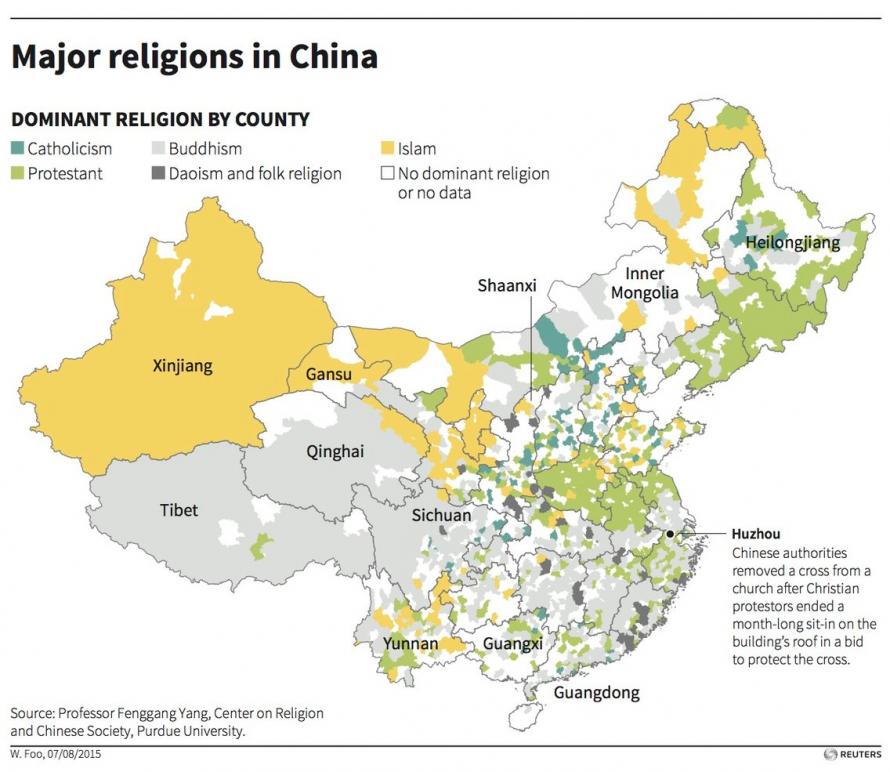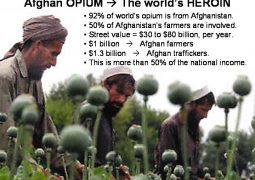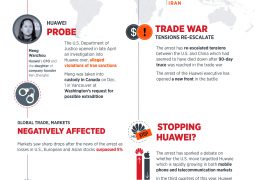China says 13,000 ‘terrorists’ arrested in Xinjiang since 2014

BEIJING (Reuters) – Authorities in China have arrested almost 13,000 “terrorists” in Xinjiang since 2014, the government said on Monday, in a policy paper defending its controversial de-radicalisation measures for Muslims in the restive far western region.
China has faced growing international opprobrium for setting up facilities that United Nations experts describe as detention centres holding more than one million ethnic Uighurs and other Muslims.
Beijing says it needs the measures to stem the threat of Islamist militancy, and calls them vocational training centres.
Legal authorities have adopted a policy that “strikes the right balance between compassion and severity”, the government said in its white paper.
Since 2014, Xinjiang has “destroyed 1,588 violent and terrorist gangs, arrested 12,995 terrorists, seized 2,052 explosive devices, punished 30,645 people for 4,858 illegal religious activities, and confiscated 345,229 copies of illegal religious materials”, it added.
Only a small minority of people face strict punishment, such as ringleaders of terror groups, while those influenced by extremist thinking receive education and training to teach them the error of their ways, the paper said.
It also gave a breakdown of 30 attacks since 1990, with the last one recorded in December 2016, saying 458 people had died and at least 2,540 were wounded as a consequence of attacks and other unrest.
The main exiled group, the World Uyghur Congress, swiftly denounced the white paper.
“China is deliberately distorting the truth,” spokesman Dilxat Raxit said in an emailed statement.
“Counter-terrorism is a political excuse to suppress the Uighurs. The real aim of the so-called de-radicalisation is to eliminate faith and thoroughly carry out Sinification.”
The white paper said Xinjiang has faced a particular challenge since the Sept. 11, 2001, al Qaeda attacks on the United States, as East Turkestan extremists ramped up activities in China, using China’s term for extremists and separatists it says operates in Xinjiang.
“They screamed the evil words of ‘getting into heaven by martyrdom with jihad’, turning some people into extremists and terrorists who have been completely mind-controlled, and even turned into murderous devils.”
Religious extremism under the banner of Islam runs counter to Islamic doctrines, and is not Islam, it added.
Xinjiang has long been an inseparable part of Chinese territory, and the Uighur ethnic group evolved from a long process of migration and ethnic integration, the paper said.
“They are not descendants of the Turks.”
Turkey is the only Islamic country that has regularly expressed concern about the situation in Xinjiang, due to cultural links with the Uighurs, who speak a Turkic language.
China has denounced Turkish concern as unwarranted and interference in its internal affairs.
“Undoubtedly, China’s counter-terrorism and de-radicalisation struggle in Xinjiang is an important part of the international fight against terrorism and has made important contributions in this regard,” the white paper said in its concluding remarks.
Reporting by Ben Blanchard; Editing by Clarence Fernandez & Simon Cameron-Moore
- Previous Burmese soldiers hunt Rakhine insurgents; 6 wounded
- Next Taiwan, South China Sea, Trade War-Huawei, and now Missiles Development. What next for US-China relations?
















